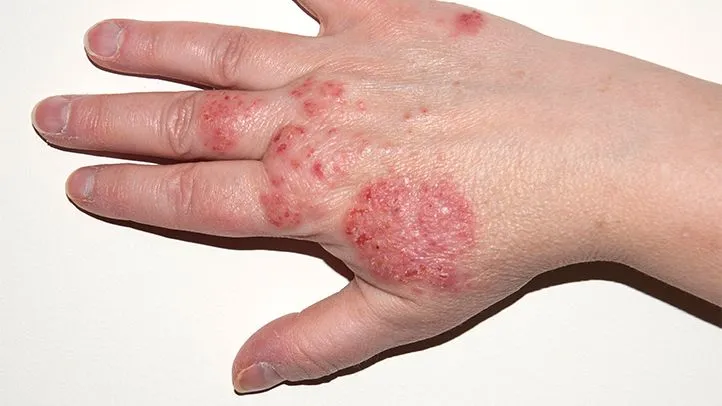What are the main causes of eczema?
Unraveling the Mystery: Exploring the Main Causes of Eczema
Eczema, a chronic skin condition, affects millions of individuals worldwide, making its mark on both adults and children. This itchy, uncomfortable ailment can have a profound impact on a person’s quality of life. In our quest to understand this condition better, let’s delve into the intricate web of causes that contribute to the development of eczema. You will also get the answer of Causes of eczema?
Understanding Eczema
Eczema, also known as dermatitis, is a broad term encompassing various inflammatory skin conditions. Its different types, such as atopic dermatitis, contact dermatitis, and more, share common symptoms including redness, itching, and dryness. The quest to uncover the main causes behind eczema is an ongoing journey in the realm of dermatology.
Genetic Factors and Causes of eczema
Your genetic makeup plays a significant role in your susceptibility to eczema. Individuals with a family history of eczema, asthma, or allergies are more likely to develop this condition. Genetic predisposition can influence the way your immune system responds to triggers, making some individuals more prone to inflammatory reactions that characterize eczema.
Immune System Dysfunction and Causes of eczema?
An overactive immune response is a key player in the development of eczema. In those with eczema, the immune system’s response to external irritants or allergens becomes exaggerated, leading to skin inflammation. This hyperactivity contributes to the cycle of itch-scratch, worsening the condition and causing discomfort.
Environmental Triggers
The environment around us can significantly impact the onset and severity of eczema. Allergens like pollen, pet dander, and dust mites, as well as irritants like harsh soaps and detergents, can trigger eczema flare-ups. The skin’s barrier function may be compromised in eczema-prone individuals, making it easier for these external factors to penetrate and irritate the skin.
Allergic Reactions
Allergies and eczema often go hand in hand. If you have allergies to certain foods or substances, exposure to these allergens can exacerbate your eczema symptoms. You will also get the answer of Causes of eczema?.This phenomenon is known as the “atopic march,” where allergies and eczema can develop in tandem, highlighting the intricate relationship between immune responses and skin health.

Skin Barrier Impairment
The skin acts as a barrier, protecting us from the outside world. In individuals with eczema, this barrier function is compromised. The weakened skin barrier allows moisture to escape and irritants to enter, triggering inflammation and itching. Proper skincare routines that focus on moisturization and gentle cleansing can help alleviate these symptoms.
Hygiene Hypothesis
The hygiene hypothesis suggests that reduced exposure to microbes and infections in childhood might contribute to an increased risk of eczema and other allergic conditions. A lack of early microbial exposure might alter the immune system’s development, making it more susceptible to inflammatory responses like those seen in eczema.
Also Read – Does eczema go away by itself? Mystery out in 2+ Way
Stress and Emotional Factors
Stress and emotions can play a surprising role in eczema flare-ups. Heightened stress levels can trigger or worsen symptoms, making it essential to manage stress through relaxation techniques and coping strategies. The mind-body connection highlights the importance of addressing emotional well-being for eczema management. You will also get the answer of Causes of eczema?
Lifestyle and Diet
Your lifestyle choices and dietary habits can impact eczema. Staying hydrated, consuming a diet rich in nutrients, and avoiding known trigger foods can help manage symptoms. Omega-3 fatty acids found in fish and flaxseed, for instance, have been associated with potential benefits for skin health.
Medical Conditions and Medications
Certain medical conditions, such as autoimmune disorders, can increase the risk of eczema. Additionally, certain medications might trigger or worsen symptoms. It’s crucial to communicate with your healthcare provider about any existing medical conditions or medications to ensure they’re not exacerbating your eczema.
In Conclusion
Eczema’s causes are multifaceted, intertwining genetics, immune responses, environmental factors, and more. Understanding these causes is a crucial step toward managing and preventing eczema. Whether you’re addressing genetic predisposition, bolstering your skin barrier, managing stress, or adopting a balanced lifestyle, a holistic approach can contribute to eczema relief.
Remember, while we’re still uncovering the intricacies of eczema, advancements in dermatological research continue to shed light on its causes and management strategies. If you’re struggling with eczema, consulting a healthcare professional can provide personalized insights and guidance tailored to your unique situation. Eczema might be complex, but with knowledge and proper care, its impact can be mitigated, allowing you to embrace healthier, more comfortable skin. In the end You will also get the answer of Causes of eczema?
For More – What to know about eczema




